- Policy
- Posted
EU energy commissioner

In March the European Energy Commissioner, Andris Piebalgs, visited Ireland in the aftermath of the Commission’s adoption of the Green Paper on a European Strategy for Sustainable, Competitive and Secure Energy. Jeff Colley spoke to Commissioner Piebalgs about key issues affecting Ireland’s energy future, including security of supply, implementation of the Energy Performance of Buildings Directive, and the importance of local initiatives such as Fingal County Council’s groundbreaking introduction of sustainable building requirements
Commissioner, specifically relating to Ireland, we are an island nation at the end of Europe, connected through the UK on a limited basis from an energy point of view. Recent statistics have shown that Ireland is currently the seventh most imported fossil fuel dependant economy per capita in the world. Do you think that for a country in this situation this issue should be perhaps treated even more seriously than a country that is very well located from an energy point of view and less reliant on fossil fuels?
I think in the EU all countries are badly located from an energy point of view. Ireland perhaps is a more visible example but I would say that none of the countries in the EU are so well located in having such indigenous resources that they could survive disruption of supply. I think Ireland faces the same challenges but you rightly indicated that first of all that means that Ireland should be looking to ensure that the EU does everything possible to make a well functioning world market for oil and gas because Ireland alone can’t do it. Ireland needs the whole EU’s weight to provide resources that are provided on market-based principles.
Secondly, I think [Ireland must] look upon energy efficiency and renewable energies, because with growth of consumption in Ireland, you need more resources. I would be a bit worried. We can say the market will provide but it will cost, so I think energy efficiency and renewables are the things that are available. Perhaps it costs more at this stage but there are State aid schemes that can provide help.
Perhaps inter-connectors with the UK could be built to establish more inter-connector capacity, because then the trade of electricity could be stronger. But if I compare for example the Baltic States, I would say their challenges are much bigger. They have around 7 million inhabitants and are like isolated islands. They have no inter-connectors whatsoever; except for a small inter-connector with Finland and a strong inter-connector with Russia so in a way I would say the Baltic States face bigger challenges, when compared with Ireland.
In the last 2 years, Ireland, with an approximate population of 4 million has added circa 160,000 new houses to our national housing stock. To put that in context, in the UK, with a population of around 60 million, they are producing a similar amount of houses on an annual basis. Similar figures are expected over the next 5 years, perhaps with a slight drop to around 60 – 70,000 per year. You are no doubt familiar with the Energy Performance of Buildings Directive, and I know it hasn’t been suggested that it would be brought in early by many Member States. The energy ratings for new homes in Ireland though have been delayed until January 2007 with the added clause that projects which secure planning permission before June 2006 are allowed to build up until June 2008 with no attention to energy ratings and so on. I’d be interested in hearing your comments on this and the importance of implementing the Directive at a stage when we are building so much of our housing stock.
Well first of all I think that the Directive should be implemented according to the demands of the Directive, so whenever a country will not implement the directive or not even transpose it, they will face infringement—not only Ireland but any country. I think each country should look upon it and really I believe that the Directive will provide a good basis for more ambitious approaches.

"I think that it is very important for Ireland as a country to look at heating from renewables"
With you mentioning those figures, Ireland definitely could look upon more ambitious approaches, because if there are a lot of buildings coming on stream, then definitely there is a need for perhaps tougher measures, and I think that it is very important for Ireland as a country to look at heating from renewables. I think if somebody chooses to get their heating from oil, I would say it is not the best solution that I would advise, so renewables definitely should be used more in heating and producing energy for housing.

"Member States could be more ambitious than the Energy Performance of Buildings Directive is, because it's a lowest common denominator"
I would like to draw your attention to a new local authority initiative that was introduced recently in North Dublin, by Fingal County Council. To my mind it represents some of the most ambitious sustainable building policy and has been brought in as a mandatory requirement of planning permission in three areas in their local authority area, and roughly 7,000 new homes will have to meet this requirement. This will require for example that 30% of the space and water heating of whatever is built in these areas will have to come from renewable energy sources, and that the total energy used for space and water heating must be deemed not to exceed 50kWh/m2 per annum. To put that in context, that is approximately twice as good as a new house built to the minimum standards of out national Building Regulations would be deemed to achieve. I would like to add also that developers have been very supportive; the legality of it has all been verified and there’s a huge level generally of support for this. Do you think that this is a way ahead?
I think it is the only way ahead actually because if you look at energy prices, I know that more competition could bring some prices down but oil prices are very stable, at around $60 per barrel. With all due respect for more production coming on stream, we still don’t see any signs that there will be a decrease in consumption so it means the oil prices staying high and gas prices staying high.
It means dependency is growing and the price that people are paying for energy will be higher. So it makes perfect sense to go this way because the building code that you are mentioning is the best way to address the issue; it’s partially enforcement and partially actually advising people how to deal in the future, so I think it’s a great initiative. For the EU in general, what we are looking for will be an energy efficient action plan based on the Green Paper on Energy Efficiency, and then we should prepare a blueprint for national energy efficiency action plans that should be already starting to be prepared from 2007 and upwards.
In this way we will try also to promote Member States to do more. It’s very difficult in all cases to use the same approach. Clearly national and local issues should be taken into account but at least the basic principles could be used in all member countries. I have sent 21 letters of formal notice to the countries who have not informed [the Commission] about the transposition of the Directive at a time when we have a lot of discussions about how much energy costs. It’s very basic that Member States that have signed up to the political goals and instruments also implement these. Member States could be more ambitious than the Directive is because it’s a lowest common denominator.

"Ireland must look upon Energy Efficiency and renewable energies, because with growth of consumption, you need resources. I would be a bit worried."
Do you think with the Energy Performance of Buildings Directive in particular that down the line the Commission would be looking at strengthening the directive or another version of the directive which perhaps sets standards as well, rather than just calling for transparency with buildings for example?
Well I think it’s important also to look at the other side because mostly we have always looked from the point of view of standards and I do believe that we should look at also incentives such as tax incentives and so on. For example we have tax incentives that could reduce the level of taxation for the energy efficiency equipment used for social housing, but very few countries use this instrument. So there is always the possibility of looking at other types of incentives on tax, so as to promote energy efficiency because it isn’t automatic.
I think it’s important to set standards and targets but you also need to develop incentives; the positive side of it, so as to have both together, otherwise it seems like a punishment and I think we shouldn’t look at energy efficiency as a punishment—it’s really a benefit.
I think that public authorities could lead the way.
- Articles
- policy
- EU Energy Commissioner
- fingal
- Andris Piebalgs
- Secure Energy
- European Strategy
- local authority
- renewable
Related items
-
Ireland joins whole life carbon data initiative
-
WorldGBC launches green building policy principles for governments
-
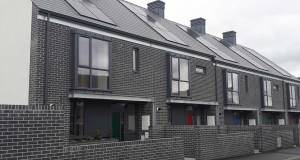 Cuckoos & magpies: state house-buying hits record
Cuckoos & magpies: state house-buying hits record -
 Blind & shutter group calls for Part B changes
Blind & shutter group calls for Part B changes -
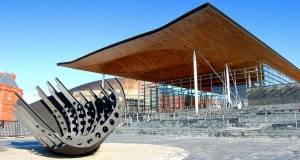 Wales votes to cut emissions 80%
Wales votes to cut emissions 80% -
 Filling the retrofit policy void
Filling the retrofit policy void -
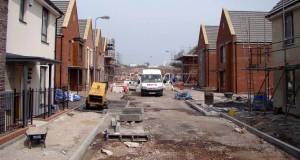 Water, water, everywhere, nor any drop to drink
Water, water, everywhere, nor any drop to drink -
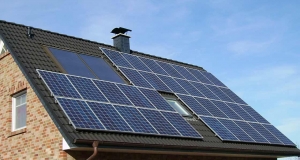 Policy for zero, or zero policy?
Policy for zero, or zero policy? -
 Why construction contracts must change in light of Grenfell
Why construction contracts must change in light of Grenfell -
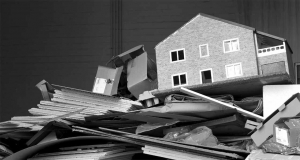 Government ‘Help to hoard' scheme - why we’re not building homes
Government ‘Help to hoard' scheme - why we’re not building homes -
 Grenfell Tower - How did it happen?
Grenfell Tower - How did it happen? -
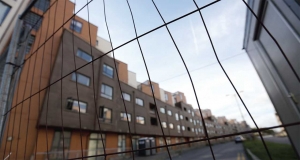 Out of control? Are building control systems properly equipped to deliver safe, healthy and well-constructed buildings?
Out of control? Are building control systems properly equipped to deliver safe, healthy and well-constructed buildings?

